Home Remedies For Strep Throat That Ease The Symptoms
You may be able to avoid taking antibiotics and cure the infection at home with common ingredients.

Image: Shutterstock
What you may think of as just a sore throat, may turn out to be strep throat. It is important that you are able to make the distinction as strep throat is an infection that may need medical attention. Also, it is highly contagious, so you would want to be aware as early as possible to avoid spreading it. Identifying strep throat symptoms early can help avoid complications and treat the condition quickly. Thankfully, there are a few home treatments you can follow to make your recovery smoother. Dive in to understand how to get rid of strep throat and what this condition is all about. This article will provide you with effective home remedies and guidance on when to consult a doctor.
In This Article
What Is Strep Throat?
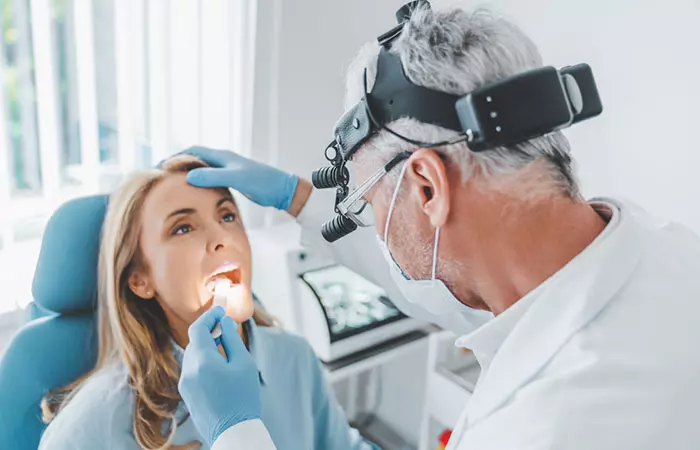
Strep throat is a contagious infection that can spread from one person to another through the droplets released during a cough or sneeze. It is characterized by pain and inflammation in the throat. Strep throat may also be referred to as streptococcal pharyngitis. While strep throat can affect people of all ages, it is most common in children aged between 5 and 15.
 Did You Know?
Did You Know?Depending on whether you have a mild infection or a severe one, you may experience one or more of these symptoms within 5 days of coming in contact with the bacteria (1):
- Sudden high fever
- Loss of appetite
- Sore or burning throat
- Difficulty swallowing
- Redness in the throat along with white patches
- Headache
- Chills
- Swelling of the lymph nodes located in the neck
A survey conducted by the CDC reported 20,000 to 27,000 cases of invasive group A strep disease (severe infection due to bacteria found in blood and tissues) each year in the US. It was performed in the last five years and saw approximately 1,800 to 2,400 people die annually due to the disease. It is also the reason behind 5.2 million outpatient visits, and 2.8 million antibiotic prescriptions annually in the US.
So how do you get strep throat? Let’s find out.
Key Takeaways
- Strep throat is a highly contagious infection in the throat and tonsils.
- It can affect people of all ages, but it is the most common condition in children aged 5 to 15.
- Loss of appetite, sudden high fever, sore throat, and difficulty breathing are common symptoms of strep throat.
- Drinking elderberry tea, consuming echinacea herb, eating honey and chicken soup may help relieve strep throat.
What Causes Strep Throat?
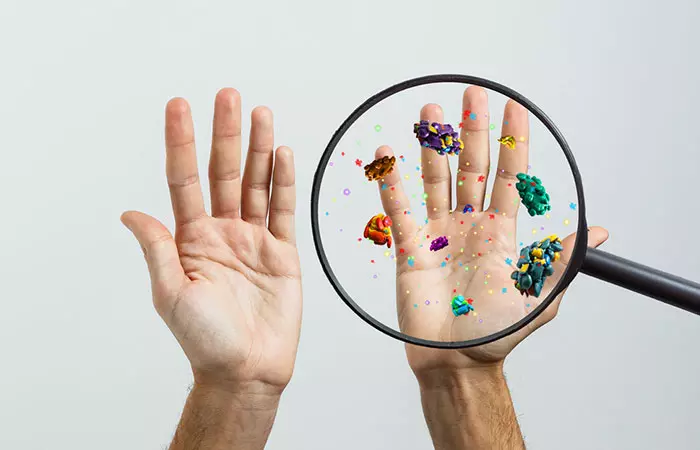
The bacteria commonly known as Group A Streptococcus, or Streptococcus pyogenes, is responsible for the infection in the throat and the tonsils known as strep throat.
This bacteria is often spread through respiratory droplets, and food and personal items shared with an infected person. You may also get it if you come in contact with a contaminated surface and then touch your mouth, nose, or eyes.
Though strep throat and a sore throat are different conditions, most of the alternative medicines that can help with sore throat are also helpful for strep throat.
How To Get Rid Of Strep Throat With Home Remedies
It is important to take adequate rest and drink plenty of water and fluids while recovering from strep throat. The following strep throat home remedies do not “cure” it, but can help ease the symptoms and aid the recovery process.
- Take Elderberry Tea Or Supplement

Elderberry, available as a supplement and as a tea, has antibacterial and antiviral effects. According to research, it can help against viral and bacterial infections, especially in the upper respiratory tract (2).
- Take Echinacea
You can take this herbal remedy as a capsule, in its liquid form, or as a tea as soon as you experience strep throat symptoms. The anti-inflammatory and anti-bacterial properties of this herb may help to soothe your inflamed and painful throat and fight against bacterial infection (3).
 Did You Know?
Did You Know?- Load Up On Vitamin C
Research suggests that Vitamin C may give a boost to your immune system and make it easier for your body to fight off any existing infection
. You can take vitamin C supplements or get your supply through dietary sources like oranges, kiwi, kale, grapefruit, strawberries, and broccoli (4).
- Honey
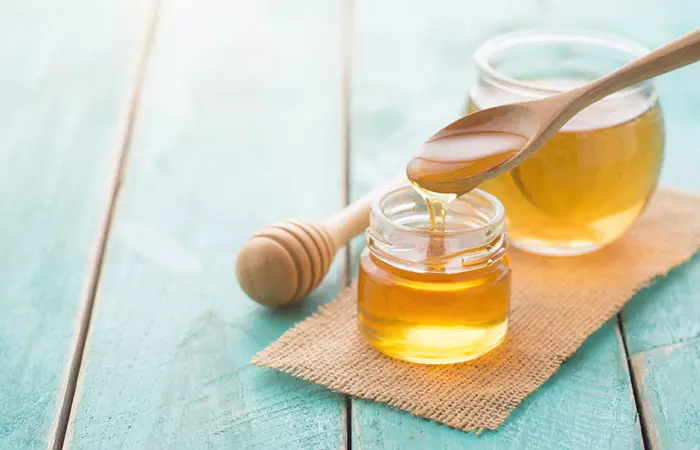
Honey has been long used as a remedy for sore throat. Organic honey may fight off bacterial infections. It has a soothing effect on a sore throat and may help to reduce inflammation. It may also give a boost to your body’s natural immune system and aid in the recovery process. Have a tablespoon of honey as is, or add it to a warm tea (5), (6).
- Chicken Soup
Strep throat may make eating a challenging task but it is important to keep up your nutrient levels. Drinking chicken soup may help ease the symptoms of strep throat due to the combined anti-inflammatory effects of the ingredients. Though chicken soup is commonly considered a folk remedy, recent studies suggest that it may provide relief from upper respiratory infections (7).
- Peppermint Oil
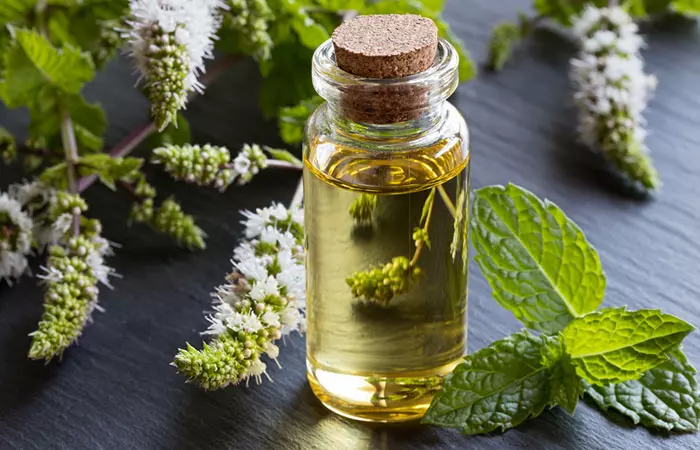
Peppermint essential oil has antibacterial properties and may help to limit the severity of your strep throat infection. The menthol in it can also provide a cooling sensation in your throat and may ease inflammation. You can inhale peppermint oil through a diffuser or apply it to the skin around your temples, throat, and chest. Peppermint oil is considered to be safe when taken orally, so you can add one or two drops of it to tea or a glass of warm water and drink it for a soothing effect. Children under 2 years of age and pregnant women should not use peppermint oil (8), (9).
- Thyme Oil Gargle
Research suggests that thyme oil may be effective in fighting oral and respiratory infections. To use it, add a couple of drops to a glass of warm water and gargle with it. Spit out the water after gargling. You can also inhale it by adding 4 to 5 drops of thyme oil to a bowl of steaming water. Children younger than 5 years of age, pregnant women, people with epilepsy or thyroid gland issues should avoid thyme oil (9).
- Salt Water Gargle
Salt has antibacterial properties that may help you to recover from a strep throat infection quicker. It may also help to reduce inflammation and soreness. A study shows that it is greatly effective in reducing the symptoms of non-bacterial pharyngitis. While further studies are needed to establish its efficacy for strep throat, doctors often recommend it for symptomatic treatment. To do a saltwater gargle, mix one-fourth of a teaspoon of salt with 8 ounces of warm water. Take a mouthful of water, swirl it around your throat for a few seconds and spit it out. Repeat a few times a day. (10).
Kelsey Ann, a lifestyle blogger, shared her top 5 remedies that helped her treat sore throat and gargling with salt water was one of them. She also added peroxide to salt water to help manage this issue. She said, “I prefer to gargle with peroxide for a couple of reasons: I don’t think it has a taste and I like to hear it bubble, for some reason when I hear the fizz, I’m convinced germs are being murdered (i).”
- Humidifier
Using a humidifier for strep throat may ease the associated discomfort. A humidifier adds moisture to the air and may help reduce irritation in the throat to help one breathe better. However, use a cool-mist humidifier and clean it daily as bacteria can thrive in certain humidifiers.
- Cayenne Pepper
The capsaicin in cayenne pepper exhibits anti-inflammatory properties (11). Some believe it may help fight inflammation and relieve strep throat. However, limited research is available in this regard.
Some proponents also claim that mixing cayenne pepper, honey, warm water, and gargling helps soothe the pain. However, there is no scientific evidence to prove this claim.
While strep throat is self-limiting and may clear up on its own, in rare cases it may cause certain complications.
Complications Of Strep Throat
Leaving strep throat untreated may lead to health complications like (1), (12):
- Acute rheumatic fever
- Rheumatic heart diseasei A condition that damages the heart valves as a consequence of rheumatic fever and can lead to heart failure.
- Post-streptococcal glomerulonephritisi A bacterial infection that leads to degeneration of kidney functions. It happens when the body's immune system attacks itself.
- Bacteremiai An infection that is caused by the entry of bacteria into the bloodstream, which can cause fever, chills, nausea, or a fast heart rate.
- Cervical lymphadenitisi An inflammation of the lymph nodes caused by bacteria, fungi, or viruses that can result in pain and enlargement of the lymph nodes.
- Endocarditisi Inflammation of the inner lining of the heart and its valves caused by germs or bacteria entering the bloodstream.
- Mastoiditisi A bacterial infection in the mastoid bone of the skull, located behind the ear. It can lead to ear pain, fever, or swelling.
- Meningitisi An infection of the protective membranes covering the brain and spinal cord caused by bacteria or viruses.
- Otitis media
- Peritonsillari A bacterial infection that causes the formation of pus-filled pockets at the back of the mouth or near the tonsils. / retropharyngeal abscess
- Pneumonia
In some cases, natural remedies for strep throat may not be enough, and you may need to seek medical attention.
When To See A Doctor
To avoid putting your health at risk, contact your healthcare professional if you experience any of the following conditions:
- Your sore throat lasts beyond three days.
- There are visible white patches inside your throat and your throat aches.
- You see spots or dark red patches on the top of your mouth.
- You have a fine, pink rash on your skin along with your sore throat.
- You have difficulty breathing or trouble swallowing.
Once you report to the doctor, you may need to go through a few steps for an accurate diagnosis.
How To Diagnose Strep Throat
To diagnose a strep throat infection, your doctor will conduct a thorough examination of your throat and neck and look for swollen lymph nodes and signs of inflammation. He will also ask about the symptoms you are experiencing.
To confirm strep throat, your doctor may ask you to take a rapid strep test. This test involves taking a swab from the back of your throat and helps to determine if the strep A bacteria is responsible for your throat infection (12).
On the off chance that your test result comes back negative for strep, but the doctor still suspects it to be so, your sample may be sent for additional testing.
Depending on your diagnosis and certain other factors like your age, immunity level, and presence of other medical conditions, your doctor will decide your treatment plan.
You can also get at-home testing kits for strep throat to quickly check if you have the infection or not. These kits give results in just a few minutes, so you can begin the treatment process right away. Read on to learn more about the treatment.
Strep Throat Treatment Options
Antibiotics like penicillin or amoxicillin are the commonly prescribed medicines to treat strep throat. Your doctor may also prescribe azithromycin for you if you are allergic to penicillin-related drugs. You may become much less contagious after starting an antibiotic course and may start feeling better soon after (1). It is however important to complete the entire dosage that you have been prescribed to reduce your risk of reinfection and making the bacteria antibiotic-resistant.
Your doctor may also recommend certain over-the-counter medications like acetaminophen or ibuprofen for strep throat.
Strep throat is most often an easily treatable as well as a preventable condition. So, let’s see how you can avoid it.
How To Prevent Strep Throat
To lower your risk of contracting strep throat, do the following:
- Avoid or limit contact with anyone who has strep throat.
- Wash your hands often with soap and water if you are around someone with an active strep infection. You also need to maintain this when you visit public places as doorknobs and other objects can harbor bacteria for a while.
- Don’t share utensils or personal items with anyone who has a sore throat or fever.
- Eat immunity-boosting food to keep your immune system strong so that your body is prepared to fight any infection.
Infographic: 5 Home Remedies To Get Rid Of Strep Throat
There is a difference between sore throat and strep. Strep throat requires medical attention, while sore throat may not. Even if you are on medication, there are several strep throat remedies you can try to soothe your condition. Check out the infographic below to learn how to get rid of strep throat overnight.

Illustration: StyleCraze Design Team
To sum up, strep throat or streptococcus pharyngitis is a contagious bacterial infection that may affect your throat and tonsils and make them feel swollen and sore. Strep throat usually resolves on its own, but in some cases, it may escalate into more serious health conditions. Doctors commonly prescribe antibiotics to treat this condition quickly and stop the communicability of the disease, there are also some home cures you can try. Strep throat home care involves the use of some common foods, herbs, and essential oils. You can prevent contracting or spreading strep throat by following hand wash routines and maintaining quarantine. Also, it is important to keep a close eye on your symptoms and get medical advice when needed. Home remedies can help ease your discomfort, but they should not replace professional medical treatment.
Frequently Asked Questions
Does apple cider vinegar help strep?
Yes, apple cider vinegar’s antibacterial qualities may help treat strep throat. However, there is no scientific proof to back up the claim.
How long is strep contagious for?
You usually exhibit infection symptoms 2 to 5 days after exposure to the bacterium. However, if you don’t get treatment, you could remain contagious for up to a month. Antibiotics can stop the spread of the infection. Antibiotic users stop being contagious after roughly 24 hours.
Are hot showers good for strep throat?
Yes, taking a hot, steamy shower can help with strep throat. Breathe in the steam from the hot shower to help minimize swelling and relieve the symptoms of a sore throat.
Is lemon water good for strep throat?
Yes, lemon water is beneficial for strep throat. It relieves discomfort and assists in breaking up mucus. Also, lemons are rich in vitamin C, which promotes immunity and aids in the prevention of infection (13). For immediate relief, combine one teaspoon of lemon juice with a warm glass of water.
Check this video tutorial to make a simple home remedy for strep throat. Quick and easy to make, it’s a great way to soothe your sore throat.
Personal Experience: Source
StyleCraze's articles are interwoven with authentic personal narratives that provide depth and resonance to our content. Below are the sources of the personal accounts referenced in this article.
i. My top five remedies for a sore throathttps://mrskelseyann.wordpress.com/2013/06/13/my-top-five-remedies-for-a-sore-throat/
References
Articles on StyleCraze are backed by verified information from peer-reviewed and academic research papers, reputed organizations, research institutions, and medical associations to ensure accuracy and relevance. Read our editorial policy to learn more.
- Diagnosis and Treatment of Streptococcal Pharyngitis
https://www.aafp.org/pubs/afp/issues/2009/0301/p383.html?utm_medium=referral&utm_source=r360 - Elderberry is anti-bacterial
anti-viral and modulates the immune system: anti-bacterial - Echinacea/sage or chlorhexidine/lidocaine for treating acute sore throats: a randomized double-blind trial
https://www.ncbi.nlm.nih.gov/labs/pmc/articles/PMC3351972/ - The Long History of Vitamin C: From Prevention of the Common Cold to Potential Aid in the Treatment of COVID-19
https://www.frontiersin.org/journals/immunology/articles/10.3389/fimmu.2020.574029/full - Honey: its medicinal property and antibacterial activity
https://www.ncbi.nlm.nih.gov/pmc/articles/PMC3609166/ - Role of honey as adjuvant therapy in patients with sore throat
https://www.researchgate.net/publication/312104274_Role_of_honey_as_adjuvant_therapy_in_patients_with_sore_throat - Chicken soup inhibits neutrophil chemotaxis in vitro
https://pubmed.ncbi.nlm.nih.gov/11035691/ - Review article: The physiologic effects and safety of Peppermint Oil and its efficacy in irritable bowel syndrome and other functional disorders
https://www.ncbi.nlm.nih.gov/pmc/articles/PMC5814329/ - Essential oils in the treatment of respiratory tract diseases highlighting their role in bacterial infections and their anti‐inflammatory action: a review†
https://www.ncbi.nlm.nih.gov/pmc/articles/PMC7163989/ - Randomised Controlled Trial of Salt Solution (Sodium Chloride) Mouth Wash vs Thymol Glycerine Usage in Sore Throat with Non Bacterial Pharyngitis
https://www.researchgate.net/publication/335681220_Randomised_Controlled_Trial_of_Salt_Solution_Sodium_Chloride_Mouth_Wash_vs_Thymol_Glycerine_Usage_in_Sore_Throat_with_Non_Bacterial_Pharyngitis - Minimal Influence of Cayenne Pepper on the Human Gastrointestinal Microbiota and Intestinal Inflammation in Healthy Adult Humans-A Pilot Study
https://pubmed.ncbi.nlm.nih.gov/36430985/ - Diagnosis and Management of Group a Streptococcal Pharyngitis in the United States2011–2015
https://bmcinfectdis.biomedcentral.com/articles/10.1186/s12879-019-3835-4 - Citrus limon (Lemon) Phenomenon—A Review of the Chemistry, Pharmacological Properties, Applications in the Modern Pharmaceutical, Food, and Cosmetics Industries, and Biotechnological Studies
https://www.ncbi.nlm.nih.gov/pmc/articles/PMC7020168/
Read full bio of Dr. Zeel Gandhi
Read full bio of Sanchari Bhattacharya
Read full bio of Arshiya Syeda
Read full bio of Dipti Sharma








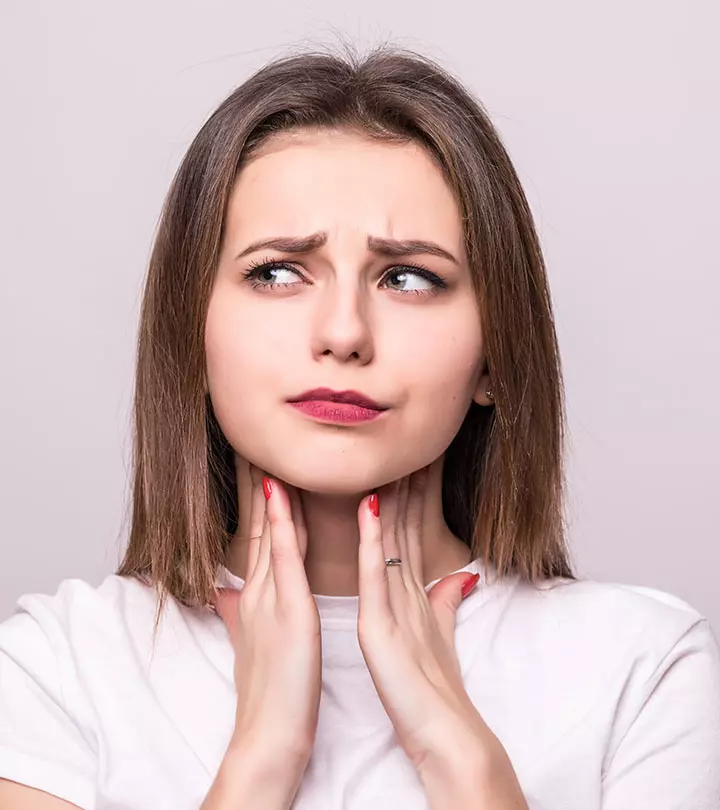
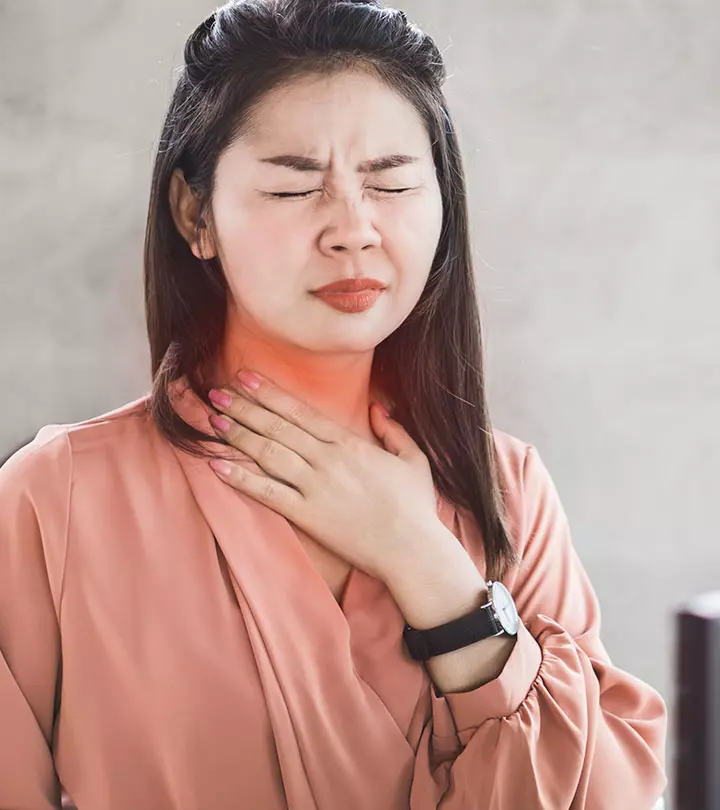
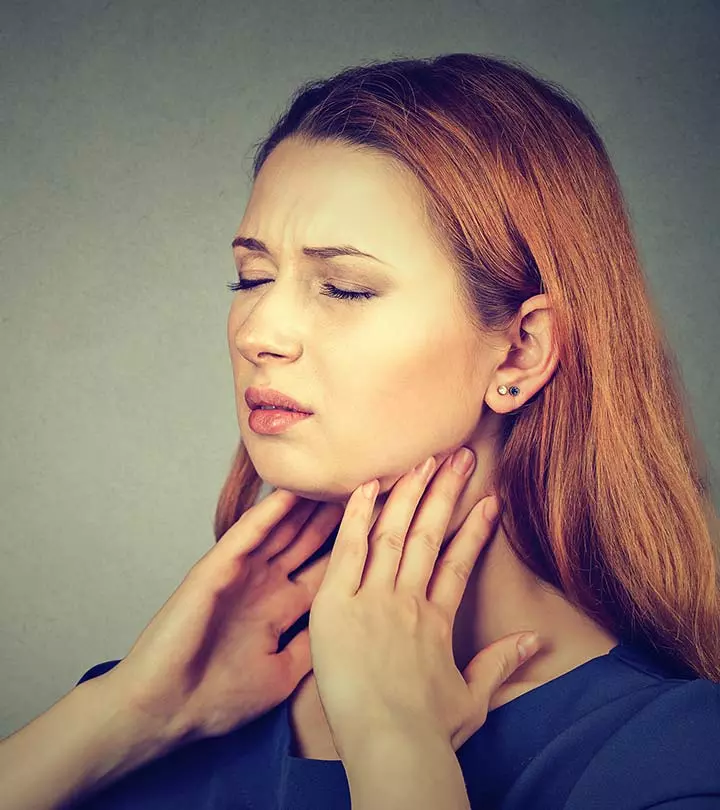

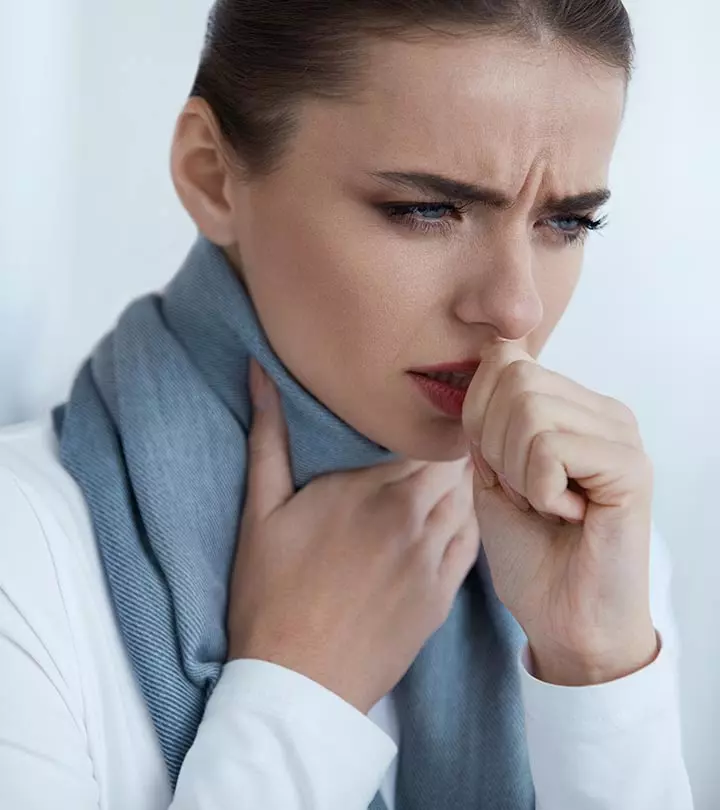
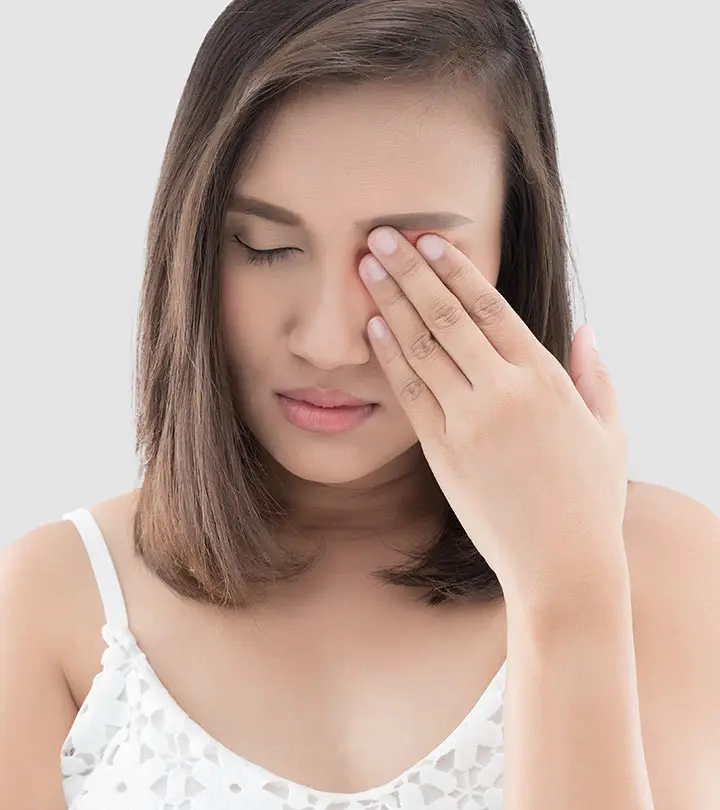


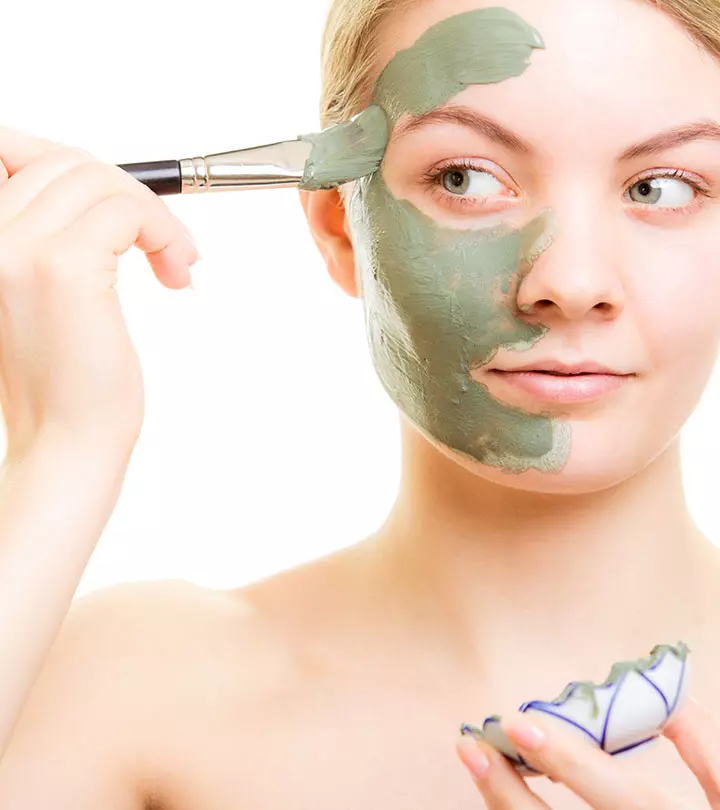
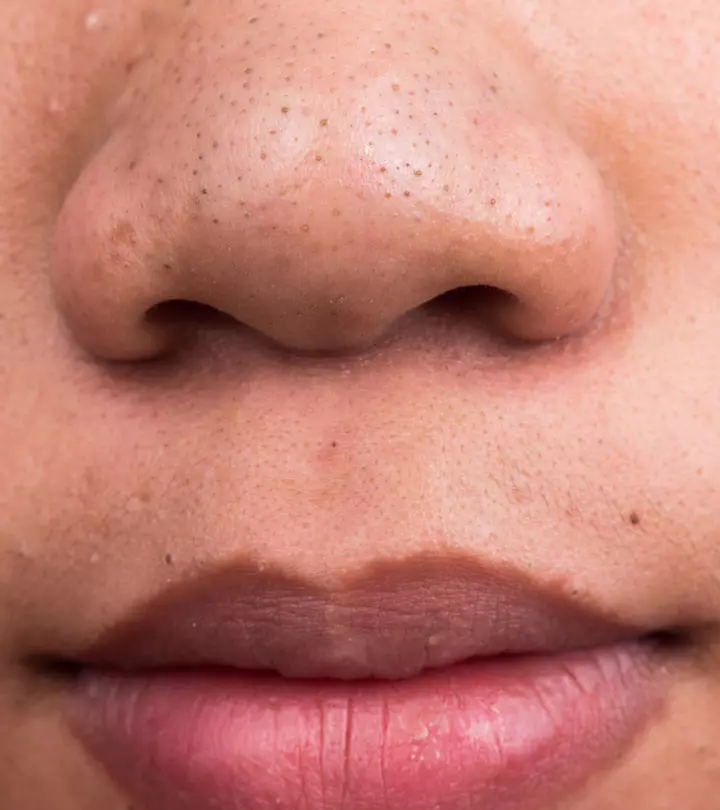


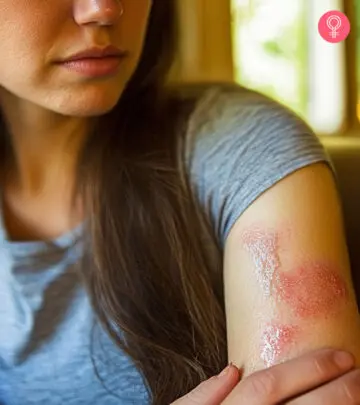



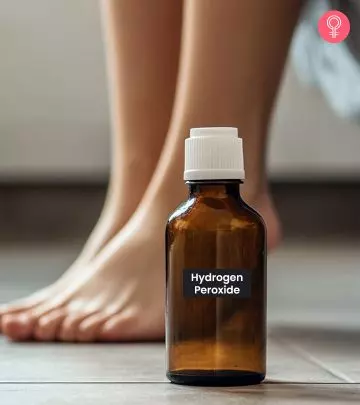

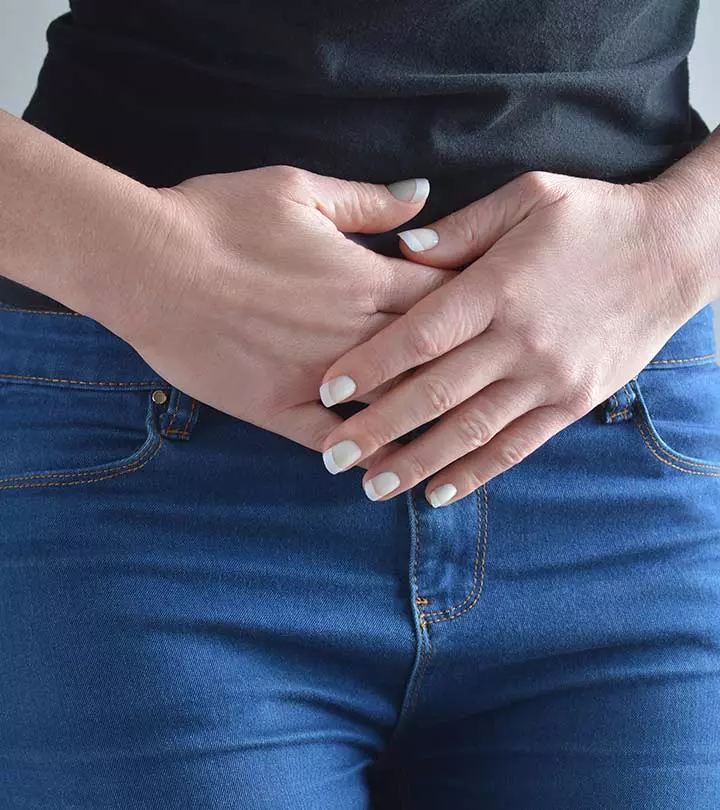
Community Experiences
Join the conversation and become a part of our empowering community! Share your stories, experiences, and insights to connect with other beauty, lifestyle, and health enthusiasts.